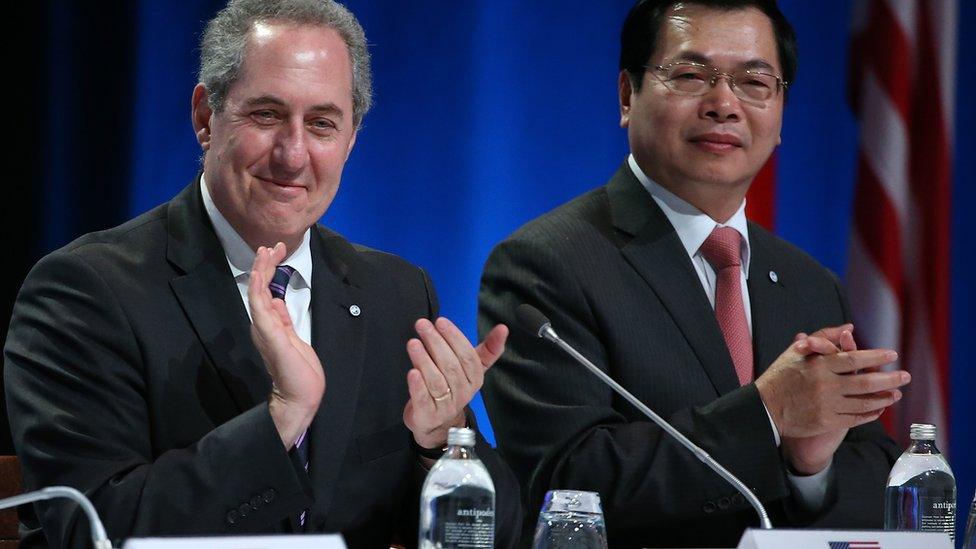New Zealand PM to skip Waitangi Day event amid TPP anger
- Published
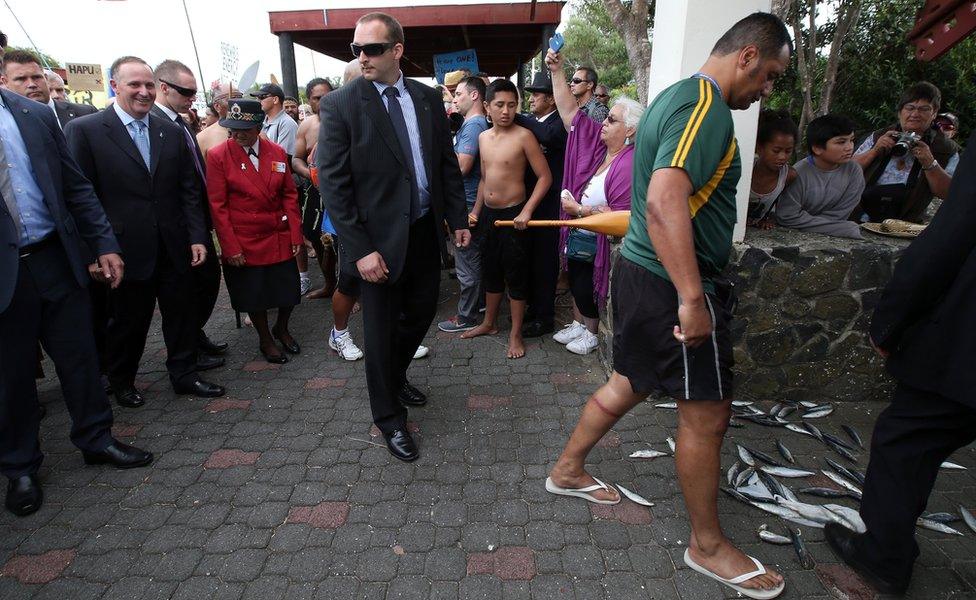
Mr Key (left) attended the event last year, when protesters threw fish in his path
New Zealand's PM John Key has said he will not attend a traditional Waitangi Day event, amid a row over the Trans-Pacific Partnership (TPP) deal.
The trade deal, signed on Thursday, has angered Maori activists who say they were not consulted and that it surrenders national sovereignty.
Waitangi Day, on Saturday, marks the signing of New Zealand's founding document, the Waitangi Treaty in 1840.
It set out the terms of British colonisation with the Maori population.
Maori leaders traditionally invite the prime minister to the signing site, Te Tii Marae which is on Maori land, to mark the day.
But this year, some had said Mr Key should not be at the event, happening on Friday.
They say the 12-nation free-trade deal violates the terms of the Waitangi Treaty, and that signing it days before the national day was insensitive.
After a community dispute, an invitation was issued to Mr Key, but on the condition he did not talk about politics at the main event, only in a separate tent.
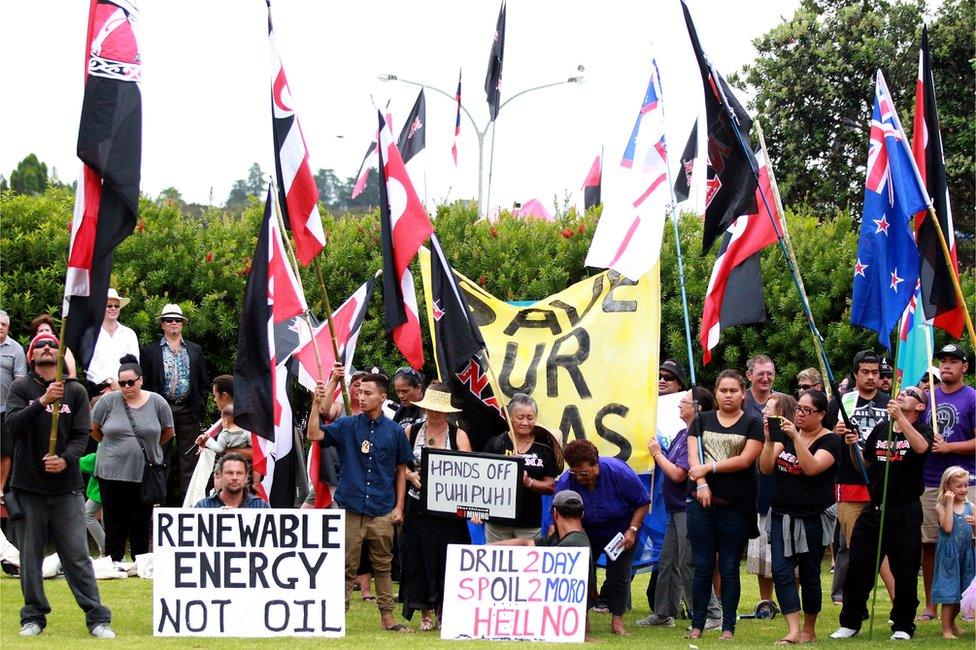
Often the site of angry protests, a large demonstration is expected at this year's event too
Mr Key said in response: "I can't go and I won't go to Waitangi with a gagging order on me."
He also accused Maori leaders of encouraging violent protests against him.
"It's a little bit frustrating because it's all Mickey Mouse if you ask me, but the Mickey Mouse-ness of it is sitting on their side, I'm sorry," he told local media, external earlier.
Local Maori chief Kingi Taurua described Mr Key's likely non-attendance as "a blessing for us" and blamed him for not consulting the Maori community on the TPP.
"I think John Key has been trying to look for a reason for why he doesn't want to come. So he's using us again as that very reason," he told stuff.co.nz, external.
TPP: Who are the winners and losers?
Signed in 1840, the Treaty of Waitangi made New Zealand a part of the British Empire. It guaranteed Maori land rights and the rights of British subjects, though many of the terms were later ignored.
Waitangi Day events have frequently been an occasion for protests by Maori activists, some of which have led to physical confrontations, including a minor assault by two men on Mr Key in 2009. There is typically a large police presence at the event.
This will not be the first time a prime minister has chosen not to attend.
Helen Clark skipped it in 2001, and again from 2005 until 2008, after being jostled at a particularly boisterous protest there in 2004. Mr Key criticised her non-attendance in 2008.
- Published4 February 2016
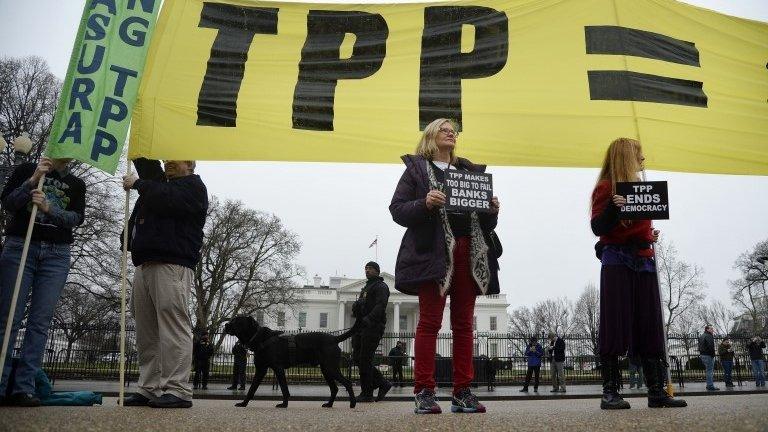
- Published23 January 2017
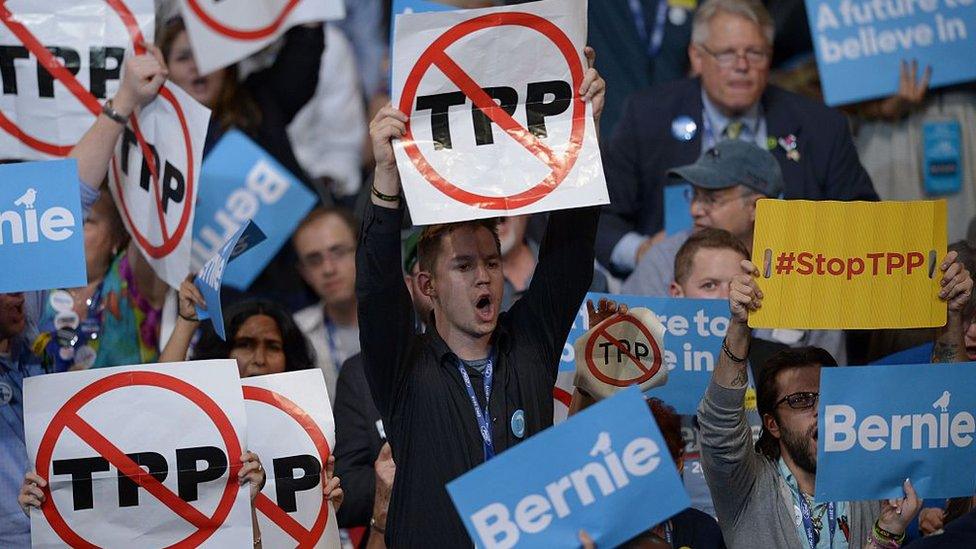
- Published4 February 2016
